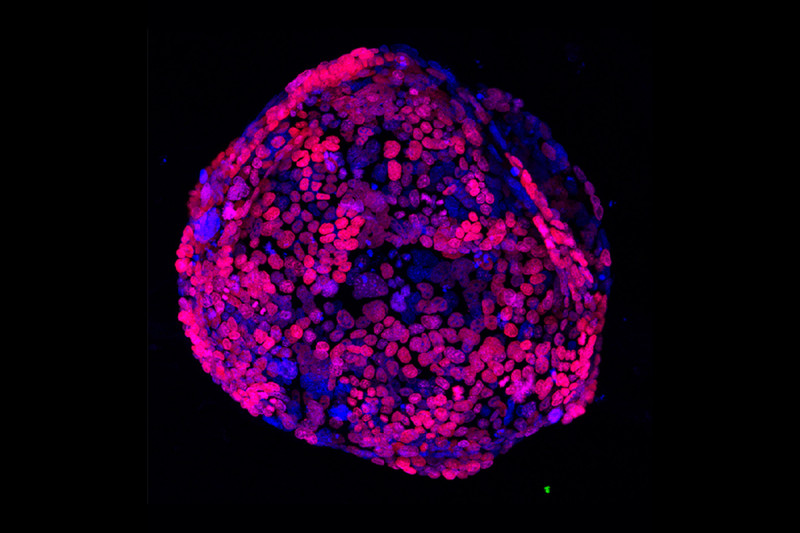In 2015, Memorial Sloan Kettering’s scientists continued to lead the way in clarifying the factors that trigger or promote cancer and in identifying new treatment strategies for the disease.
Here’s a recap of some of the most compelling work from the past 12 months.
Making Colorectal Cancer Cells Normal Again
Scientists knew that mutations in a gene called APC can trigger the formation of colorectal cancers. What they hadn’t been able to figure out was whether the same mutations play a role in more-advanced colorectal tumors.
A team led by Cancer Biology & Genetics Program Chair Scott Lowe confirmed that APC mutations spur the progression of the disease at later stages, suggesting that the gene may be a promising target for future drugs. They also demonstrated that artificially restoring normal APC activity in mice could cause colorectal cancer cells to revert to a noncancerous form and prevent the disease from returning.
“It wasn’t that the cells died or stopped dividing,” Dr. Lowe says of the experiment. “They seemed to return to their original, noncancerous state and were able to function normally. It tells us a lot about colorectal cancer from a biologic perspective, and it has important ramifications for potential therapies.” Read the full story.
Landmark Achievements for Immunotherapy
Multiple studies in 2015 further demonstrated the success of immunotherapy, which unlocks and boosts the immune system’s inherent ability to defend the body against cancer.
The immunotherapy drug nivolumab (Opdivo®), which MSK physician-scientists played a major role in developing and testing, was recognized for its effectiveness against several cancer types. The FDA recently approved it to treat melanoma, either alone or in combination with another immunotherapy drug called ipilimumab, as well as advanced renal cell carcinoma, a type of kidney cancer.
Despite its striking effectiveness in some patients, nivolumab, part of a class of drugs called PD-1 inhibitors, does not work for everyone. One study, led by MSK cancer scientist Timothy Chan, showed that PD-1 inhibitors are effective in only 20 to 30% of patients with non-small cell lung cancer (NSCLC). The drugs are more likely to be effective in people whose tumor DNA contains smoking-related mutations.
“The link …was totally unexpected,” reports Dr. Chan. “This is the first time anyone has shown that a widespread mutational landscape clearly affects the outcome of an immunotherapy.”
The findings could guide the use of PD-1 inhibitors in lung cancer patients and also influence clinical trial approaches to investigate the drugs for other cancer types. Read the full story.
The Next Wave of Cancer Drug Testing
Basket Trials
Cancer drug assessment has entered a new age. While traditional clinical trials focus on a particular cancer type, “basket studies” instead concentrate on a specific mutation found in the tumor, regardless of where the cancer originated. The first published report from a basket study showed that the drug vemurafenib could be effective across multiple cancer types with a mutation in a gene called BRAF — although blocking the mutation did not guarantee success.
“Precision medicine has come to the forefront of cancer treatment,” said Physician-in-Chief José Baselga, the study’s senior author. “This study demonstrates we can design trials based on genomics as opposed to site of origin of the cancer.”
In the trial, vemurafenib produced responses in a diverse set of cancers. The most encouraging results came in patients with NSCLC as well as two rare, noncancerous disorders known as Erdheim-Chester disease and Langerhans cell histiocytosis. The researchers believe the results could lead the FDA to approve vemurafenib as a treatment for these diseases, dramatically changing the outlook for people with these conditions.Read the full story.
Other Innovative Work
In addition to the above findings, MSK scientists pursued other fascinating research in 2015, including discovering how a gene mutation leads to follicular lymphoma, understanding why certain tumor types metastasize to specific organs, discovering that some cases of acute lymphoblastic leukemia in children may be linked to an inherited gene mutation, and developing a Netflix-inspired approach to understanding how proteins turn genes on and off.




